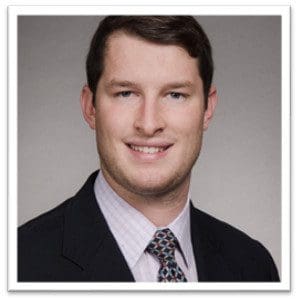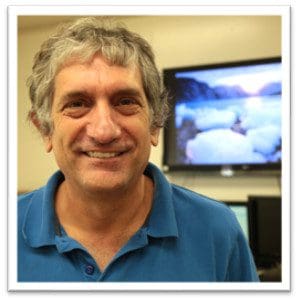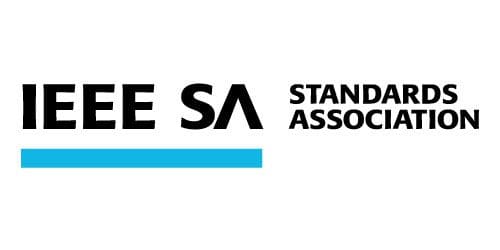Quantum Computing Education - Workforce Development
2020 marked the launch of a decade of explosive growth for the enterprise quantum computing market.1 This disruptive technological innovation is projected to reach $9.1B in annual revenue by 2030 (vs. $260M in 2020).2 Although, global quantum technology research reports reveal near-term trends with the potential to disrupt global commerce, the quantum workforce is not yet established to meet the anticipated demand for this important industry of the future.3
Our new flagship Quantum Computing Education—Workforce Development Program is designed to empower our community of lifelong learners with quantum technology industry knowledge for global impact. At IEEE, we are dedicated to advancing technology for the benefit of humanity through educational activities. We aim to serve professionals involved in all aspects of science and technology that underlie modern civilization.
Courses
Systems Engineering Approaches and Challenges in Quantum Computing
Live event has concluded – On-demand version coming soon
Abstract
NISQ era quantum computers can perform useful applications today. But, realizing the full potential of these systems will require both advances and close collaboration from a broad swath of science and engineering disciplines. Traditional systems engineering models, typically adapted from aerospace and defense industries, are often too prescriptive in defining requirements and use-cases. Furthermore, enterprise systems engineering methods and tools are often focused on how to best prepare an enterprise for change, not how to vector the development of specific systems that will disrupt enterprises. Systems engineering professionals need to consider augmenting best-practices while building lower TRL emerging technologies, such as quantum computing, that require more flexible planning. This course will address possible approaches and challenges, especially for systems with many potential use-cases of strategic interest.
Host
Maëva Ghonda, IEEE Chair, Quantum Computing Education for Workforce Development Program
Instructor
Will Madsen, Quantum Systems Engineering and Architecture Manager, Rigetti Computing
Quantum Systems Engineering for Scientists
Abstract
Dr. Martinis would like to invite you to an upcoming talk on Quantum systems engineering for scientists. As the field of quantum Computing has advanced building complex machines it seems like a good time to talk about some of the organizational principles that one might use for such a large effort. System engineering concepts have been well developed for other technologies, so here he has focused on quantum computers. This special emphasis comes from the need for engineering discipline for the many physicists and scientists on the project who typically don’t have an engineering background, so his talk will cover some basic principles. He will also discuss some of the unusual constraints that are found for quantum computers such as the inability to copy information and the large amount of information that is needed to control qubits. Here’s an example of an interesting principle that scientists should know. Although the scientific method is the foundation of all technology, it is well-known that strictly following the scientific method for project management will cause failure so you will want to know why. This is an important subject for the field of Quantum Computing so please come and bring a lot of questions since Dr. Martinis would like to learn from you through active engagement.
Host
Maëva Ghonda, IEEE Chair, Quantum Computing Education for Workforce Development Program
Instructor
Dr. John Martinis, Physics Professor, UCSB
Quantum Computing 101: Introduction to Quantum Computing for Everyone
Registration coming soon
Instructor
Maëva Ghonda, IEEE Chair, Quantum Computing Education for Workforce Development Program
Instructors

Maëva Ghonda
IEEE Chair - Quantum Computing Education for Workforce Development Program
Maëva Ghonda is a scientist with the unique ability to explain complex information in a manner that is easy to understand. Maëva fell for her true love—Quantum—while working as Quantum Scholar for the Joint Quantum Institute (JQI) for a National Institute of Standards and Technology (NIST) Fellow. She began to discover what is possible with quantum—i.e. Quantum Teleportation and Quantum Money—while reading intricate details of novel quantum-enabled inventions hidden in global patent documents to uncover valuable quantum technology innovations. Before this fantastic quantum meet-cute, Maëva was an engineer in aerospace where she worked on the production of the 3D printed parts for the autonomous CST-100 Starliner for NASA’s Commercial Crew Program. Moreover, she has also held cybersecurity risk management roles in healthcare and financial services. In addition to her passion for Quantum Computing and Quantum Cryptography, Maëva Ghonda is also quite obsessed with Quantum Teleportation and, of course, Quantum Money.

Will Madsen
Quantum Systems Engineering and Architecture Manager, Rigetti Computing
Will leads systems engineering and integration efforts within the technical organization at Rigetti Computing and manages its portfolio of Department of Defense (DOD) programs. Before joining Rigetti, Will was a Developmental Engineer for the United States Air Force where he led engineering teams in flight testing and space launch operations. He holds a BS in Systems Engineering from the US Air Force Academy.

Dr. John Martinis
Physics Professor, UCSB
He has worked on a variety of low temperature device physics during his career, focusing on quantum computation since the late 1990s. He was awarded the London Prize in Low temperature physics in 2014 for his work in this field. From 2014 to 2020 he worked at Google to build a useful quantum computer, culminating in a quantum supremacy experiment in 2019.



